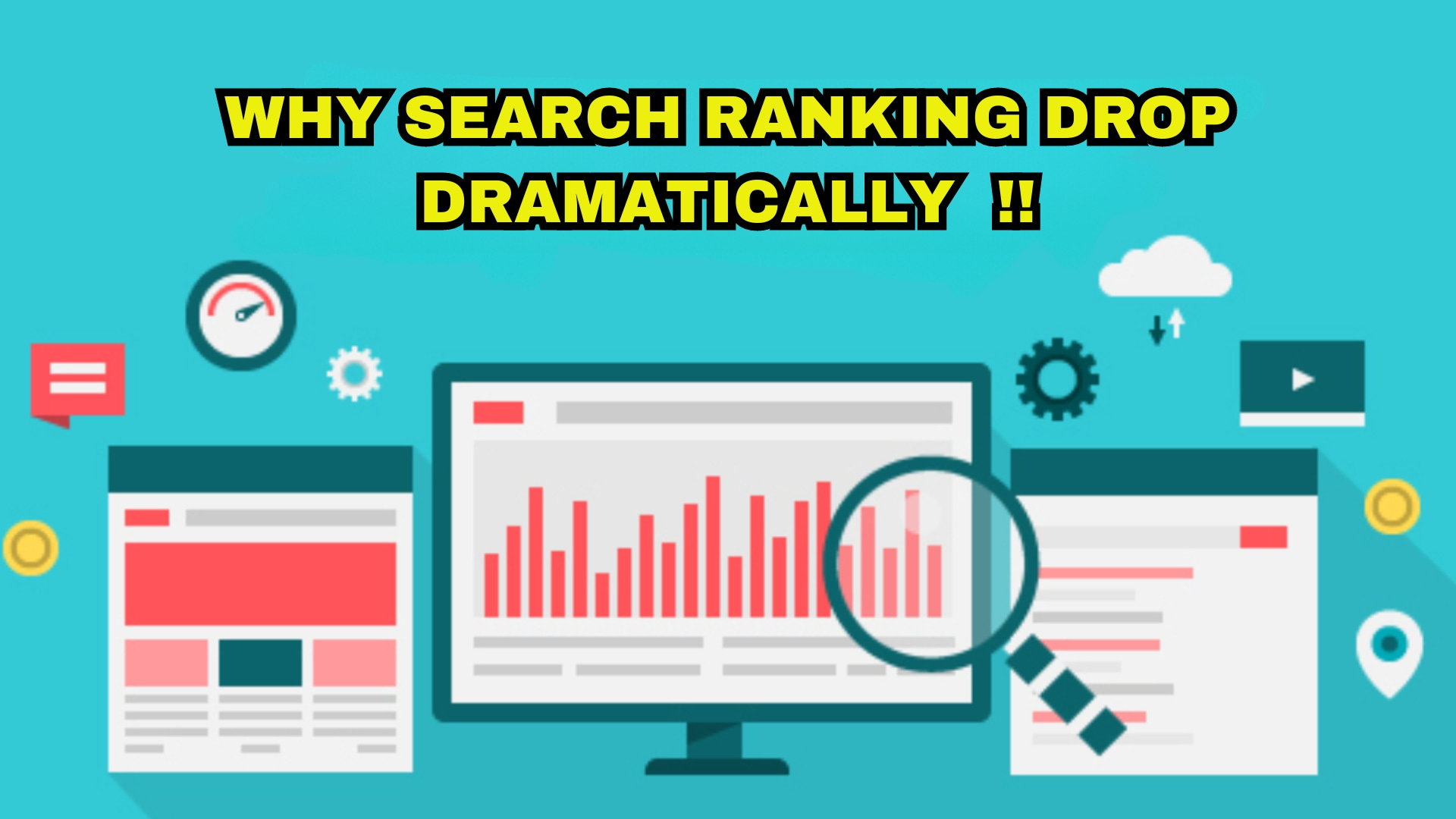Everything is fine when your rankings improve and your organic traffic continues to grow. Then one day you decided to check your keyword rankings and see a significant decline. Almost all of your keywords have vanished from Google’s search results.
Please stay calm to understand the issues and solve them accordingly. With proactive troubleshooting, your rankings can be recovered and the thread of success can begin to move in the right way.
Today, in this post, we will go over some of the most common reasons your site’s Ranking Dropping Dramatically, in addition to the steps you must take to recover.
Top 9 Reasons That Lead To A Drop In SEO Rankings
Google Algorithm Update – This is the most typical reason for ranking changes. Those changes are sometimes just temporary. However, certain changes may result in longer-term effects that must be assessed to figure out whether the new algorithm caused the decline. Unfortunately, recognizing an algorithm modification is a difficult task. To stay up to date on the latest Google news and algorithm changes reports you may subscribe to “Google Search Central”.
Manual Website Modifications – Extensive website adjustments that do not include suitable redirects, such as adding new pages or plugins, modifying keywords, meta descriptions, or page titles, migrating to a new server, and so on, are the most common reasons for a sudden drop in your ranking. Even adding additional videos to a page might slow it down and lead viewers away. When such a thing happens, Google believes that the page is not useful and therefore decreases its ranking.
Your Website Lost Links – Your ranking may suffer if any of your website’s authoritative pages (such as your homepage) go through structural changes that result in broken links. The same thing happens if you lose important external backlinks.
Changes in Website Content – If you just modified your website’s content, the information on a certain page may have changed, resulting in a decline in ranking for that page. This ranking change might be advantageous or destructive. For example, the page’s content may have been modified to optimize for high-volume keywords. As a consequence, while the ranks for a single keyword you’re tracking may fall, the ranks for another with a higher search traffic may rise at the same time.To assess how it will ultimately be ranked for a range of keywords, it is essential to publish old material a few weeks after upgrading it and optimizing it for new and different keywords.
User Search Behaviour Changed – Your ranking for specific keywords may have dropped since they are no longer looked for. For example, people looked for “hand sanitizer” regularly throughout the pandemic. Due to the shortage, DIY efforts to create sanitizer at home increased dramatically, as people started to search for “how to make sanitizer at home” often. While the outbreak is almost away, people now occasionally look for hand sanitizer.
A Rise in Competition – In terms of competition, if your SEO is outperformed, you may witness a drop in ranking. For example, if modifications have been made to their websites by other firms in your niche, you may be outranked for specific keywords.
Manual Penalty – With algorithm upgrades, lost links, or modifications to your website, you’re often forced to guess and assume why your ranks dropped. However, if you receive a manual penalty, Google is going to notify you. Manual penalties are Google’s approach to informing you if you violated their webmaster quality requirements which might be spammy backlinks, weak content, or any other factors.
Losing Some Of Your Backlinks – Since backlinks are one of Google’s top three ranking requirements, losing some of your backlinks, particularly high-authority backlinks, might cause your page to drop in the search engine rankings.
The Website Has Been Hacked – If your website has been hacked, it may result in a big drop in SEO rankings. It’s a good idea to check for it at first because it’s simple to diagnose. After opening the Google Search Console, navigate to the “Security and Manual Actions” page and choose “Security Problems.” If it says “No issues found,” the drop in SEO rankings did not occur due to a malicious entity attacking your website. Move on to the next stage.If it finds an issue with your website, it has very probably been hacked or infected with malware. This Search Console Help page defines the various security vulnerabilities, and you may read this Google article to discover how and why your site was hacked, as well as how to recover.
Steps To Follow If Your SEO Ranking Has Dropped
Double-Check To Determine Whether Your SEO Ranking Has Dropped – The first step is to check your SEO ranking using tools like Google Analytics and Google Search Console to determine whether it has decreased significantly.You may use these tools to see whether there was a reduction in organic traffic to the pages you believe suffered, compare organic traffic data to the impacted pages before and after the ranking drop, check if the decline was seen in more than one tool, and so on. If the data confirms that your SEO ranking has collapsed go to the next step.
Confirm the Cause of the Drop in Your SEO Ranking – Next, identify the source of the drop. Examine every aspect of your operations, from the in-house SEO staff to your site hosting supplier.
Fix The Issue Depending On The Root Cause – You can fix the problem once you discover what’s causing it. Whatever steps you take to improve your website’s ranking, try to keep users’ search preferences in mind.
Contact an SEO Expert to Help – Finally, if you are unsure about the concerns, it is recommended to get advice from the best SEO company in Ballygunge. For example, when dealing with poor content you may require the assistance of a professional. If the content is considered weak and requires professional evaluation and editing, when it is incompatible with rivals.
Conclusion
Whatever the severity of your site’s damage, keep in mind that there is always a method to ensure you can effectively rebuild your online business with an improved position on search engine results pages.




![Read more about the article Top 10 SEO Companies in Barasat Updated List [2024 – 2025]](https://mlorcsbiwiqy.i.optimole.com/cb:urkj.3d6c7/w:300/h:169/q:mauto/f:best/https://skwebworld.in/wp-content/uploads/2024/08/Barasat-Companies.jpg)